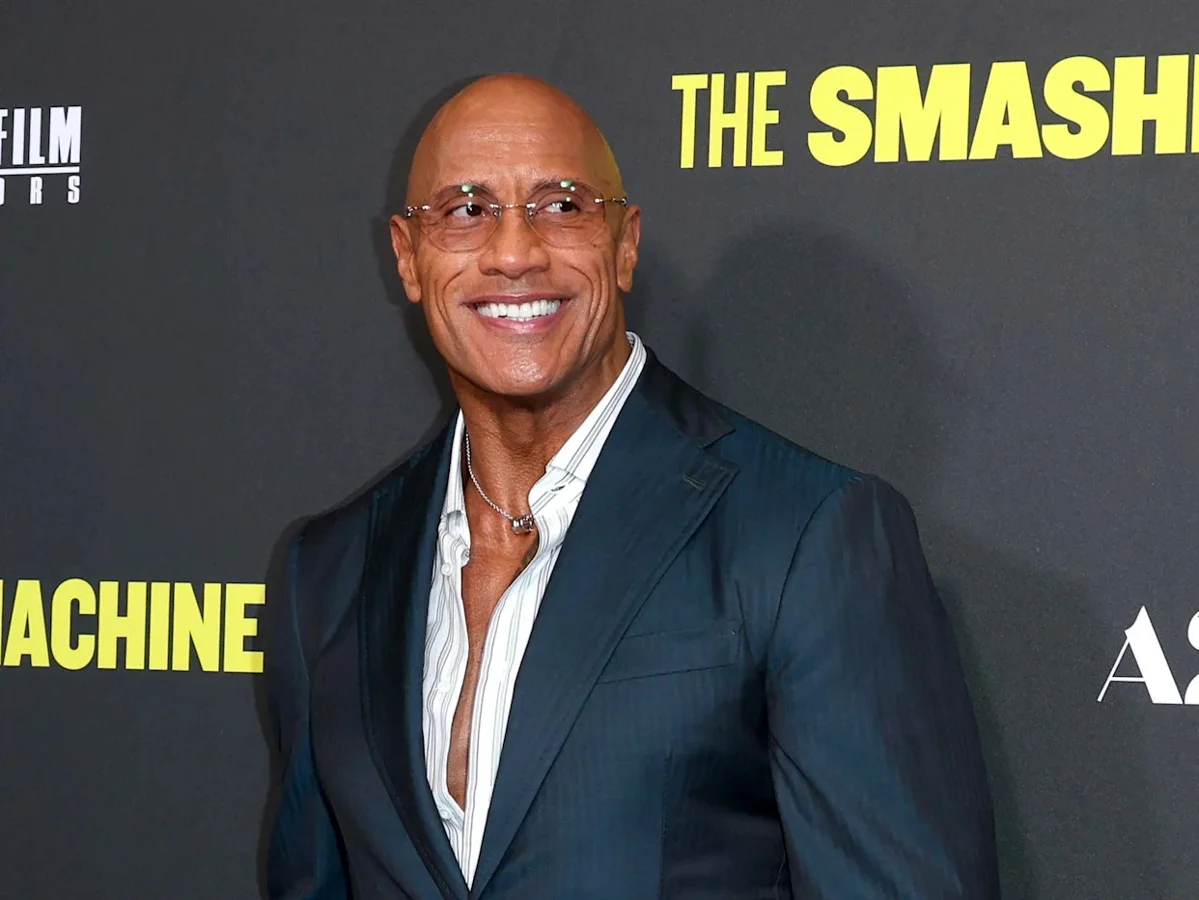Dwayne Johnson’s latest film, The Smashing Machine, produced by A24, opened to a disappointing $6 million domestically, marking a career-low debut for the actor. Released nationwide on a wide scale, the sports drama failed to connect with audiences despite a $50 million production budget and heavy marketing efforts. This setback delivers a significant blow to both Johnson and A24, which likely faces substantial losses from the film’s box office performance.
A Departure from Dwayne Johnson’s Usual Roles
Unlike his typical action-packed and family-friendly hits like The Mummy, Fast and Furious, and Moana, Johnson’s role in The Smashing Machine is a grittier, more dramatic portrayal of UFC champion and wrestler Mark Kerr, who battles substance abuse while attempting a career comeback. This switch to a raw, emotional narrative is a notable shift for the WWE star turned actor. Critics gave the film mostly positive reviews, with a 73% rating on Rotten Tomatoes, but audiences were less enthusiastic, awarding it only a B- CinemaScore, reflecting their lukewarm reception.
The Audience Confusion over Target Demographic
The film’s weak turnout raises a crucial question: who was The Smashing Machine meant for? A24 marketed this movie as an arthouse drama with awards potential, highlighted by its premiere at the Venice Film Festival and buzz around Johnson’s transformation. However, the audience that showed up was predominantly younger males—about 70% of ticket buyers were men aged 18 to 36—aligning more with Johnson’s traditional fanbase than arthouse viewers. Meanwhile, only 8% of attendees were over 55, a key demographic for such dramatic projects. This mismatch meant many viewers expected a different type of film, leading to disappointment and weaker audience ratings.

The Financial Risk Behind the $50 Million Budget
Dwayne Johnson’s high salary packages have generally been justified by the box office returns of his films, but The Smashing Machine was a risky bet given its dramatic tone and limited mass appeal. With a $50 million budget, combined with additional marketing costs, the studio opted for a wide release of over 3,000 theaters, rather than a slower, word-of-mouth-building platform launch. Since theaters typically split ticket revenues 50-50 with studios, the film needed to gross more than $100 million globally to break even— a difficult target rarely achieved by A24 projects. Furthermore, sport-based dramas often struggle internationally. David A. Gross, head of FranchiseRe consulting, pointed out,
“Sports dramas do not travel well overseas,”
adding,
“Each country has its own sports myths and dreams. American wrestling is a local phenomenon, and that will limit it abroad.”
The Shrinking Opening Weekend Projections
Initially, The Smashing Machine was forecast to bring in $17 million over its opening weekend, a respectable figure largely due to Johnson’s star power. However, those estimates quickly diminished; by the weekend, analysts had dropped projections to just $6 million. Internal shifts suggested the final tally might be closer to $5.5 million after ticket sales were counted in full. This steep decline stemmed mainly from poor word-of-mouth as early audiences voiced their dissatisfaction, causing momentum to stall rapidly. Despite hopes for a stronger theatrical run, the film is now expected to reach only about $15 million domestically throughout its entire stay in cinemas.
Why Festival Applause Didn’t Translate to Commercial Success
The Smashing Machine premiered at the Venice Film Festival, where it received a lengthy standing ovation and best director honors went to Benny Safdie, who is widely known for his work with his brother Josh Safdie on films like Uncut Gems and Good Time. Positive festival reactions generated Oscar buzz, but this critical acclaim did not convert into ticket sales. The enthusiastic reception on the Lido reflected the film’s artistic merits rather than broad audience demand, demonstrating how festival success doesn’t automatically guarantee box office profitability. The impact on its awards prospects remains uncertain following the commercial disappointment.
Failure to Create Audience Urgency and ‘Must-See’ Buzz
Theater owners emphasize that widespread excitement and cultural conversation fuel box office hits. Films that generate “fear of missing out” often dominate their opening weekends, as seen with recent successes like Barbenheimer and sleeper hits such as Sinners and Weapons. Unfortunately, The Smashing Machine lacked this critical momentum. Despite significant marketing, the film failed to establish a compelling reason for immediate viewing, which contributed to its lackluster weekend performance and limited audience turnout.
Impact of Competing Releases and Market Factors
Another factor that could have influenced the film’s weak debut was competition from Taylor Swift’s concert film, The Official Release Party of a Showgirl, which topped the box office with $33 million during the same weekend. Although Showgirl booked many premium large-format screens originally expected for The Smashing Machine, analysts suggest the effect on Johnson’s film was minimal. Shawn Robbins, director of movie analytics at Fandango, observed,
“There’s not a significant audience crossover between Taylor Swift’s fanbase and a male-driven sports drama,”
adding,
“Maybe a small degree of premium-large-format screens weren’t available, but I don’t think it’s related to ‘The Smashing Machine’s’ underperformance.”
As Swift might say, “Don’t blame me.”
What This Means for Dwayne Johnson and A24
The disappointing launch of The Smashing Machine signals a troubling moment for Dwayne Johnson’s career and A24’s willingness to back ambitious projects with large budgets. This box office failure highlights the challenges actors face when shifting genres and potentially alienating their core audience. The film’s inability to attract arthouse viewers or satisfy Johnson’s traditional fanbase underscores the risks involved in such departures. For A24, known for modestly budgeted indie successes, the need to recoup a $50 million investment in a niche genre presents a daunting task.
Looking ahead, it remains to be seen whether The Smashing Machine can find a second life through awards recognition or streaming platforms, where niche audiences might better appreciate its story. However, the film’s theatrical fate illustrates that even established stars like Johnson can encounter setbacks when expectations and audience interest diverge sharply.
